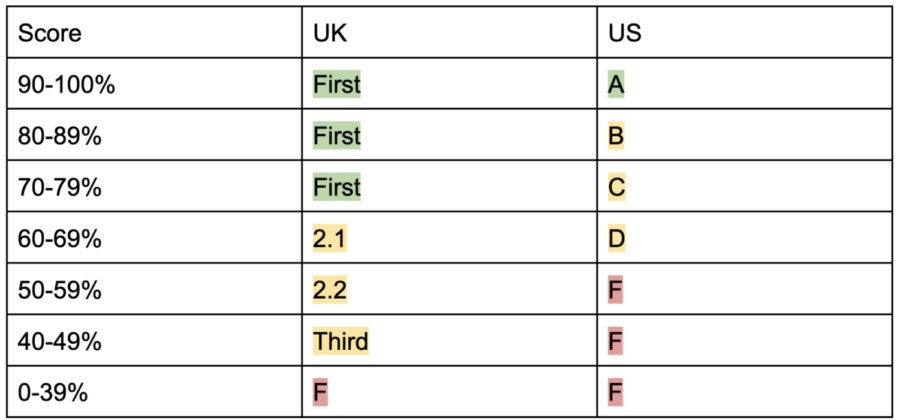U.S. grading system sets students up for failure
Test-taking can be difficult for a large population of students in high school. As if their high school experience wasn’t already hard enough, students have to deal with the constant pressure to perform well academically.
Numerous students stay up late each night trying to cram for tests and complete their homework, all to receive a grade that they might not even be happy with. Students who receive a mediocre grade that doesn’t meet their standards, usually have the option to retake that test – depending on the teacher.
Most teachers average the two test scores, which becomes the final score for that test. Students who might not have done so hot on the first try have to overachieve and do considerably better than the previous time, just for their final grade to only be an average of the two.
Recall method tests are usually significantly harder for many students over application method tests. As taught in Bay Port’s psychology classes, people tend to remember only about 10 percent of what they hear and 20 percent of what they read.
Students who don’t immediately grasp the concept are essentially doomed when it comes time to take their test. Considering people only remember about only 10 percent of what they hear, it would be a considerable accomplishment to even remember at least 50 percent of the information during the test.
Knowing and remembering at least half of the information should be considered good. However, the grading system in school disagrees. Recalling half of the information on a test receives a letter grade of an F. A student who has already remembered up to 40 percent more than our brain allows for would have failed the test – by a longshot.
A test retake would be the best option for this student, although they would have to score a 100 percent on the retake just to get their final grade into the C range. This is simply not a fair expectation for students, as it has literally been proven that we can’t remember that much information.
The current grading system imposes too much shame on scores that should be celebrated. Instead, the United States school system should adapt to meet some of the other grading systems from around the world, for example, the United Kingdom. In the chart below, it can be seen that students in the U.K. that score 70 percent or higher are marked as high honors. In the U.S., students who score a 70 percent receive a C.
The U.K. has a smaller margin for their students to fail, while the U.S. takes up half of the scale. The U.S. puts too much pressure on students to do well, while giving them such small room for success.
Instead, U.S. school systems should change their grading scales and adopt some of the ideas from European countries that actually give students room to succeed.




